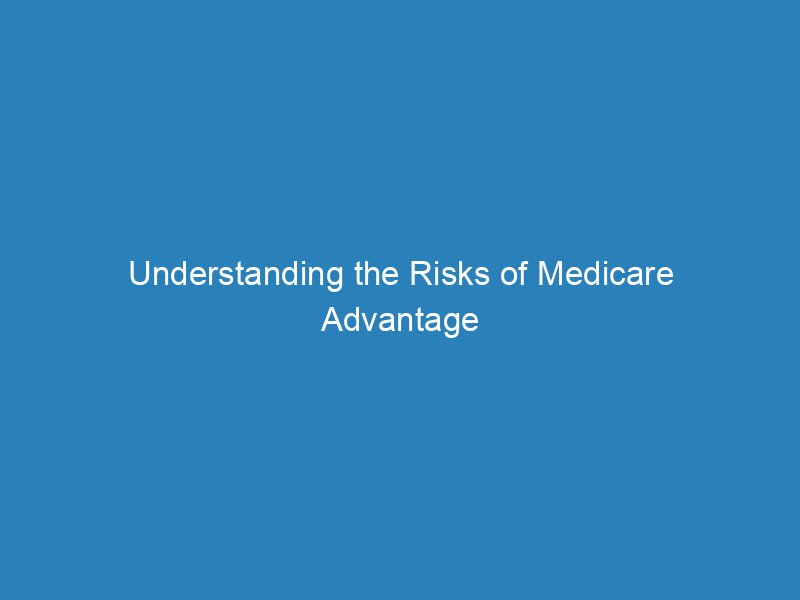
Understanding the Risks of Medicare Advantage Plans: A Patient’s Warning
As retirees Tim and his wife settled into their Shiloh home, they anticipated a peaceful life filled with leisure. However, their reality quickly transformed into a relentless barrage of junk mail, telemarketing calls, and commercials—most of which were harmless annoyances. Yet, one particular product stood out: Medicare Advantage insurance plans, which pose a significant risk to seniors who are often at their most vulnerable.
“I want to alert retirees about the importance of scrutinizing these offers,” Tim Stephenson emphasized. “When you’re inundated with junk mail about insurance, it’s easy to toss it without a second glance. This deluge can leave seniors at risk of being misled.” Despite its name, Medicare Advantage is not government insurance but rather a product from private companies, a misconception that many find difficult to navigate.
The marketing tactics surrounding these plans can be misleading, filled with enticing offers that obscure hidden costs and coverage limitations. This confusion can lure many into enrolling, especially those looking to save money during retirement. “The term ‘Medicare Advantage Plan’ is misleading,” noted Dr. Stephen Wilber, a hospitalist at Baxter Regional. “A more accurate term would be ‘Medicare Replacement Plan.’ They attract people with promises of free vision and dental care. While saving money is appealing, these insurance companies aren’t offering these perks out of goodwill; rather, they use them as bait for plans that may not provide adequate care when it’s truly needed.”
Challenges of Medicare Advantage Plans
One of the most significant challenges associated with Medicare Advantage is the limited network of doctors willing to accept these plans. Many healthcare providers have opted out due to the stringent managed care tactics employed by these companies. This has led to a situation where patients may have to travel farther for care or be separated from their families when seeking rehabilitation or nursing home services, as local options may be unavailable or out of network. For those fortunate enough to find an in-network provider, navigating the bureaucracy can be cumbersome. “Securing necessary authorizations for high-cost imaging or surgeries has become increasingly difficult,” Dr. Wilber explained. “Requests for approvals are often denied, and while some can be overturned through persistent advocacy, there have been troubling instances where medically recommended care has been rejected.”
Jean Gaylord, program director for acute inpatient rehab at Baxter Regional, highlighted that the core issue with these plans lies in who controls medical decisions. “With original Medicare A and B, your care is coordinated by you and your primary care physician,” she clarified. “However, with an Advantage plan, the insurance company dictates your care. This often requires preauthorization, which can delay treatment significantly—sometimes taking weeks.”
Understanding the Fine Print
“Most Advantage plans require authorization for nearly every service,” noted Kattie Laney, the director of patient financial services at Baxter Regional. “With traditional Medicare, we can schedule procedures immediately. In contrast, Advantage plans can require extensive phone calls and online approvals, which can slow down care.” This complexity is another reason many healthcare professionals advocate for traditional Medicare combined with a supplemental insurance plan to help manage out-of-pocket costs.
There are also surprises in store for patients once they dig into the details. “Many people are unaware of the limited number of physicians and hospitals that accept their plan,” Laney said. “Some discover that their trusted doctor doesn’t accept their coverage. Additionally, higher co-pays can catch them off guard, leading to unexpected expenses.”
Gaylord stressed that the complicated authorization processes must be repeated at every stage of treatment, from hospital discharge to in-home care, and even for essential medical equipment during recovery. “Many individuals choose these plans for financial reasons or because they see them advertised,” she said. “However, they often overlook the fine print or may not even have access to it. That’s why we encourage people to consult with knowledgeable insurance agents who can clarify their options and the true costs associated with each plan.”
Tim Stephenson shared a cautionary tale about his late father, who was switched to a Medicare Advantage plan without understanding the implications. “When he retired, he was promised lifetime insurance benefits,” Tim recounted. “But without his knowledge, his employer transitioned all retirees to an Advantage plan. Everything seemed fine until he needed hospital care at age 95, and the recommended acute rehab center didn’t accept his plan.”
Fortunately, Tim was able to help his father switch to a plan accepted by Baxter Regional, where they received excellent care. However, he was shocked to learn that his own benefits as a retired state employee were also being converted to a Medicare Advantage plan. “I was furious. After all the trouble I had with my dad’s care, now I was facing the same issue with my own insurance,” he said. “It’s vital for consumers to remain vigilant. If you ignore these communications, you might find your benefits changed without fully understanding the impact.”
A recent report by federal investigators revealed that thousands of individuals enrolled in Medicare Advantage plans are denied essential care that should be covered. This underscores the importance of being informed and proactive about healthcare choices, especially for seniors navigating the complex landscape of insurance options.

